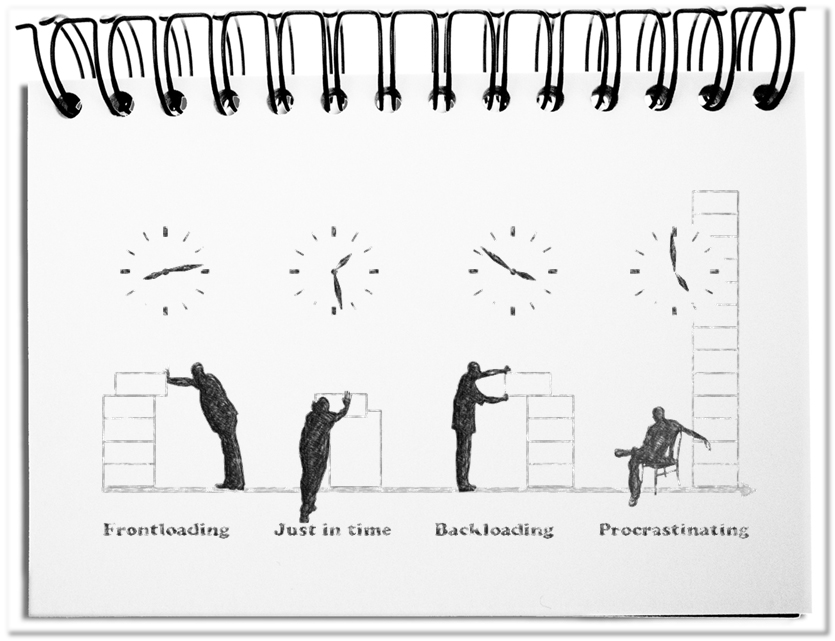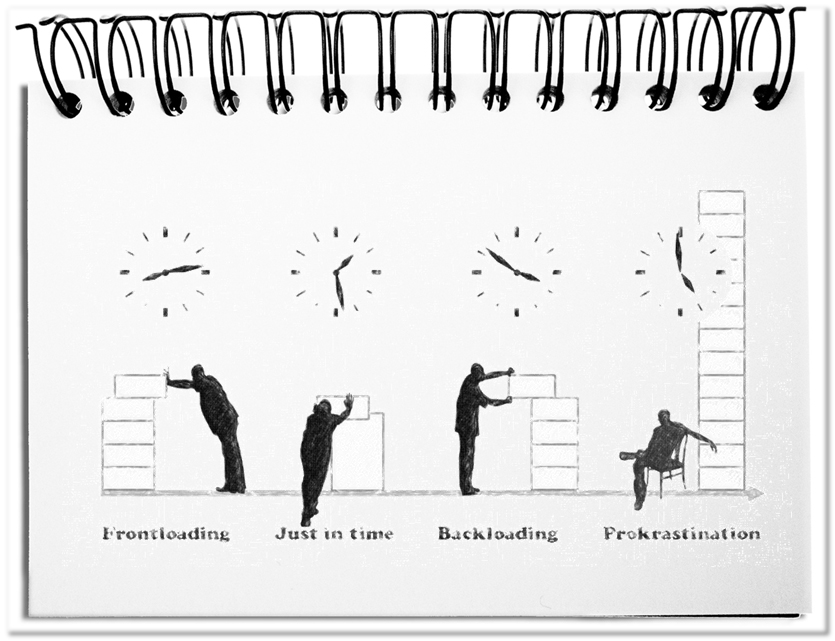Digitization virtualizes business processes and overcomes physical limitations. How long will it take, until we are no longer ordering a spare part and receive it in a parcel, but rather print the parts with a corresponding 3D printer, wherever we are. Based on the provided instructions, we are able to install the part. This leads to a tremendous acceleration, since the delaying physical delivery is eliminated. What does this mean for our planning? Do we change our procedures? Do we still need the right moment to take care of the plan?
Even production and logistics processes are shifted into the computer and accelerated that way. Automated agents, equipped with appropriate rules, decide independently and unimaginably quickly. People with their feelings, doubts and their slow way of thinking become a risk. To what extent are human decisions possible in a timely manner and still necessary in the flow at all? Or how quickly can people in charge react? Are the following planning approaches still necessary in the future?
- Frontloading
This planning approach is not only important by its early planning moment, but also by advancing certain activities, which are actually needed later. The main advantage is the overview of all tasks and dependencies at the beginning of the initiative. That way complicated subsequent adjustments and the resulting overloads are avoided. Complying with the time and financial budgets is more likely with Frontloading. The disadvantage is the uncertainty that the activities are potentially not yet required and eventually no longer needed, because the framework conditions changed over time. - Just in time
The prompt planning is attractive because it only takes place when you really need it, that is, shortly before the activity comes up. Until then the circumstances are clearer and offer less surprises. This makes the planning less complex but at the same time more reliable. Attention is always here and now. Were there no dependencies that one recognizes too late or not at all – with the fatal effect of increasing risk. Due to unforeseen disturbances, dates are missed and the further expiration stalls at unexpected places. - Backloading
In reactive mode you run after the dates. Like the fire brigade, you are in a waiting position in order to timely limit the damage. In Backloading, a rough plan is being continually improved and means for emergencies are prepared accordingly. The advantage is that as long as there is no fire, everything takes its course. The participants can manage everything by themselves without unnecessary coordinating overhead. The disadvantage arises in case of many fires that can not be brought under control. This planning approach is one reason why two thirds of the projects fail. - Procrastinating
The most irresponsible variant of planning is postponitis, the passive sitting tasks out. There is no activity before or after, but the whole thing is simply repressed. This leads to an accumulation of undone tasks, which eventually cannot be mastered. To what extent the avoidance of expenses is an advantage for the shifter is in the eye of the observer. The appropriate description of this behavior is probably too unfriendly. There are no advantages for the project, because the desired results are not created.
Only a few people are suitable for the decisive business of planning. The necessary foresight requires an understanding of the tasks, the relevant components with their parameters and sufficient imagination to anticipate the potential bottlenecks. And even if the corresponding skills are available, the planners need sufficient information with a corresponding level of detail – Who does what? When are they available? Who needs what? How is everything connected? What is the current status? And so on.
Bottom line: People are constantly needed, who take the responsibility and do the business of planning. The personality determines the chosen approach – as long as it is not postponitis. Frontloading is the safest way to get a coherent planning, even so the most time-consuming. Just in time is pragmatic and successful, as long as there are no big surprises in the interplay of the activities. Backloading is the last way to achieve a result. In any case, nip procrastinating in the bud, since no results are produced. Everyone should consciously decide for oneself when is the right moment for the planning – and bear the consequences.


